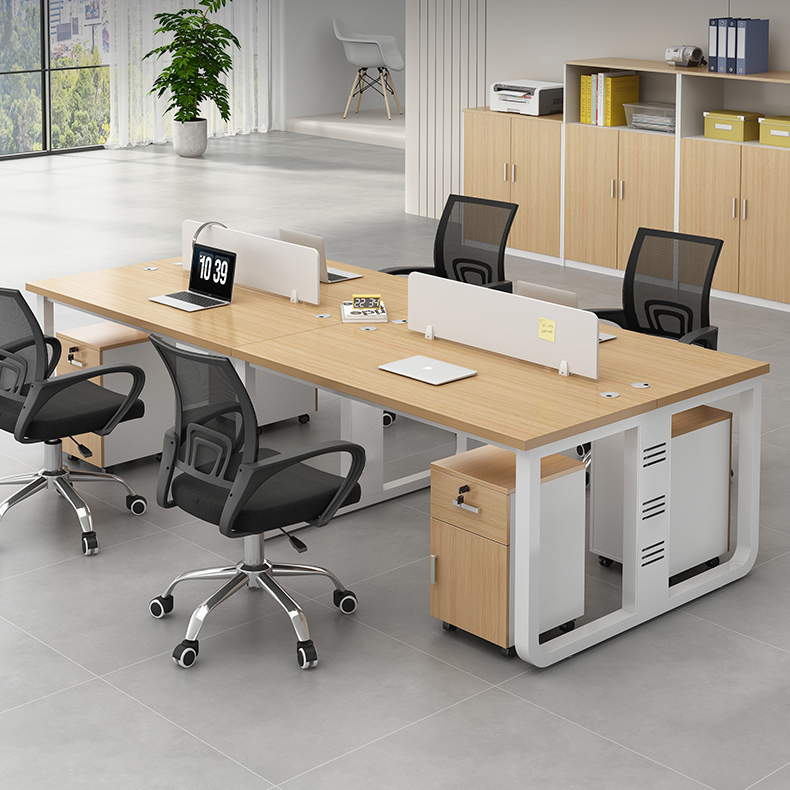
When it comes to wooden furniture, understanding the differences between solid wood and engineered wood in a humid environment is crucial. Solid wood, being a natural material, has pores that can absorb moisture. In a high - humidity environment, say with a relative humidity above 70%, solid wood furniture may expand, leading to warping or cracking. For example, a client in a coastal area found that their solid wood dining table developed small cracks after a rainy season.
On the other hand, engineered wood is made by bonding wood veneers or fibers together. It is more resistant to moisture compared to solid wood. Engineered wood furniture can generally withstand a relative humidity of up to 80% without significant damage. However, if exposed to direct contact with water for an extended period, it can still swell and lose its structural integrity.

To keep your wooden furniture in good condition, it's essential to use the right cleaning tools and mild formulas. For general cleaning, a soft microfiber cloth is your best friend. It can effectively remove dust without scratching the surface. You can also use a vacuum cleaner with a soft brush attachment to clean hard - to - reach areas.
As for cleaning solutions, avoid using harsh chemicals that can damage the surface coating. A mild solution of water and a few drops of dish soap can work wonders. Dip the microfiber cloth in the solution, wring it out well, and then gently wipe the furniture. Here's an expert's advice:
"Always test the cleaning solution on a small, inconspicuous area first to ensure it doesn't cause any damage."
Scratches are inevitable on wooden furniture. But don't worry, there are several home - based solutions you can try. One common method is using wood wax oil. Apply a small amount of wood wax oil to the scratch and rub it in gently with a soft cloth. The wax will fill the scratch and blend in with the surrounding wood, making the scratch less noticeable.
Another option is using toothpaste. Yes, you heard it right! Non - gel toothpaste can be used to fill in minor scratches. Apply a small amount of toothpaste to the scratch, rub it in a circular motion, and then wipe it off. You'll be surprised at how well it works. Here's a simple flowchart to guide you through the scratch repair process:

Let's look at some real - world client cases to understand the long - term value of proper furniture maintenance. A furniture retailer in Europe noticed that after providing their customers with detailed maintenance guides, the return rate of their wooden furniture decreased from 10% to 3%. Customers were more satisfied with the furniture's condition over time, leading to increased brand loyalty and repeat purchases.
By taking good care of your wooden furniture, you can not only extend its lifespan but also enhance the overall customer experience. This is how you can make every piece of furniture a long - term trusted choice for your customers and build a high - repurchase - rate advantage in the foreign trade market.
Regular maintenance is the key to extending the lifespan of your wooden furniture. You should inspect your furniture at least once a month. Check for signs of wear and tear, such as scratches, loose joints, or changes in color. Here's a practical inspection checklist:
| Inspection Item | Frequency | Action |
|---|---|---|
| Surface Scratches | Monthly | Repair using appropriate methods |
| Joint Tightness | Monthly | Tighten loose joints if necessary |
| Moisture Damage | Monthly | Check for signs of swelling or warping |
By following this checklist, you can catch potential problems early and take appropriate action to keep your furniture in top shape.
Do you have any experience in maintaining wooden furniture? Share your tips and stories in the comments below! And if you want to learn more about wooden furniture maintenance, click here for more in - depth guides.


.png?x-oss-process=image/resize,h_800,m_lfit/format,webp)








